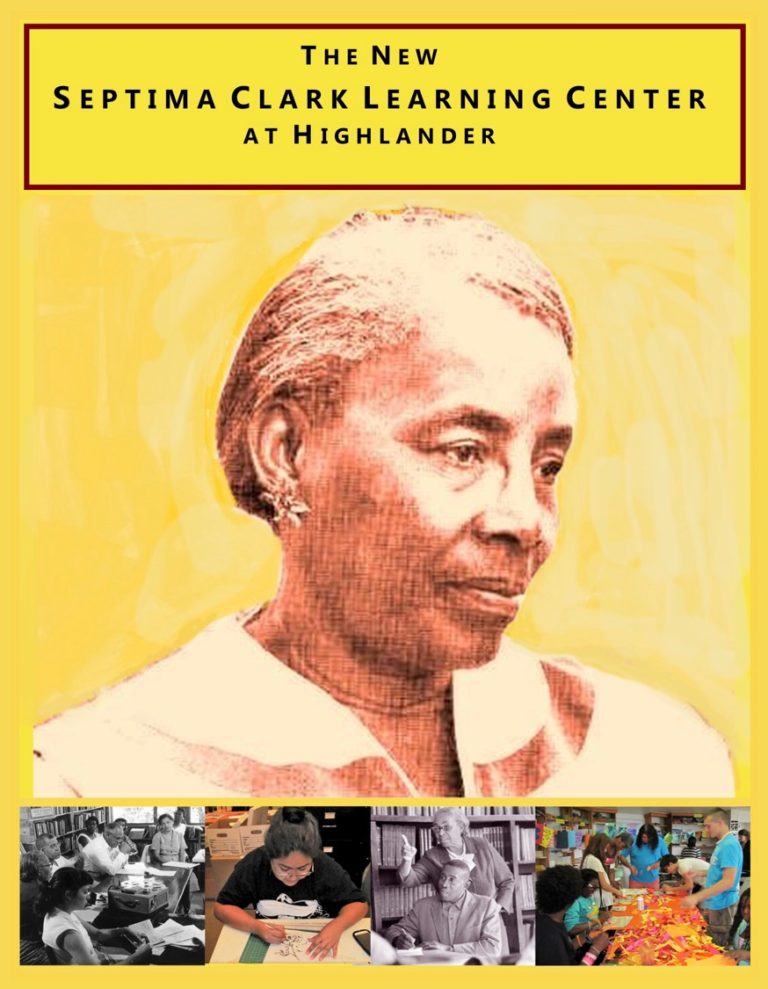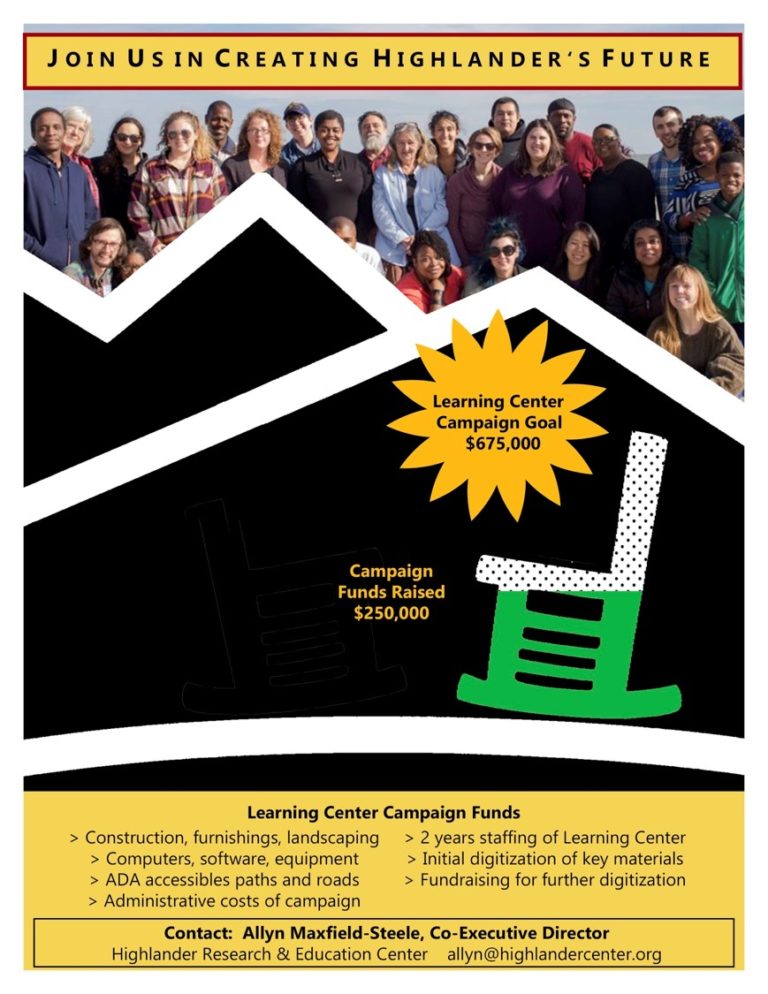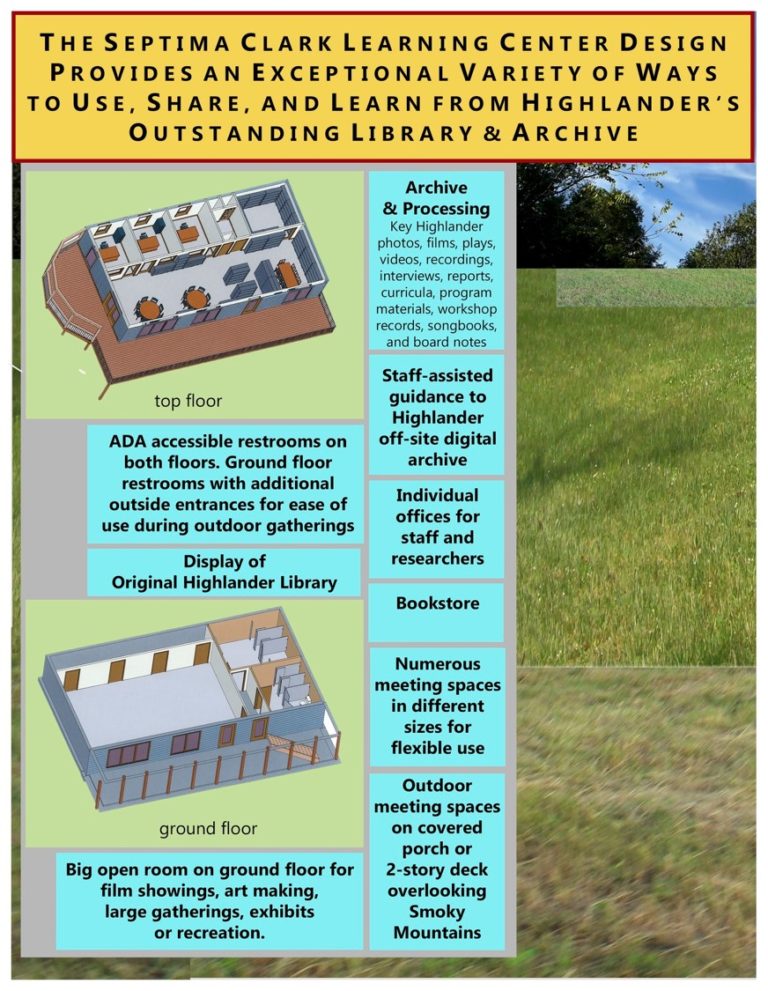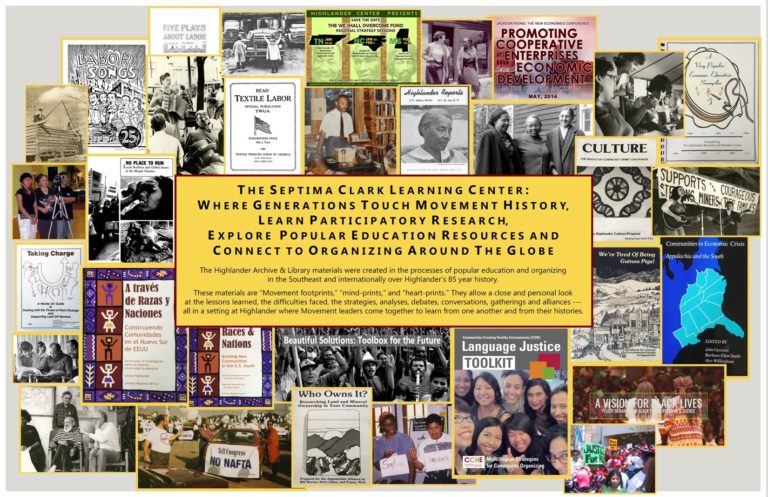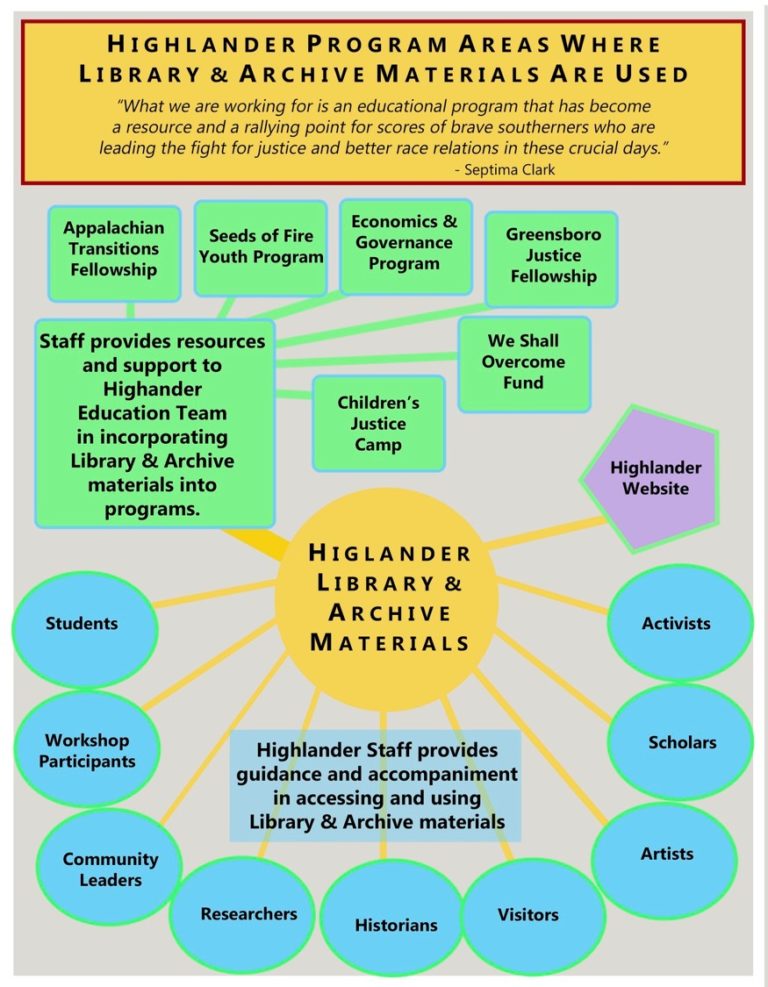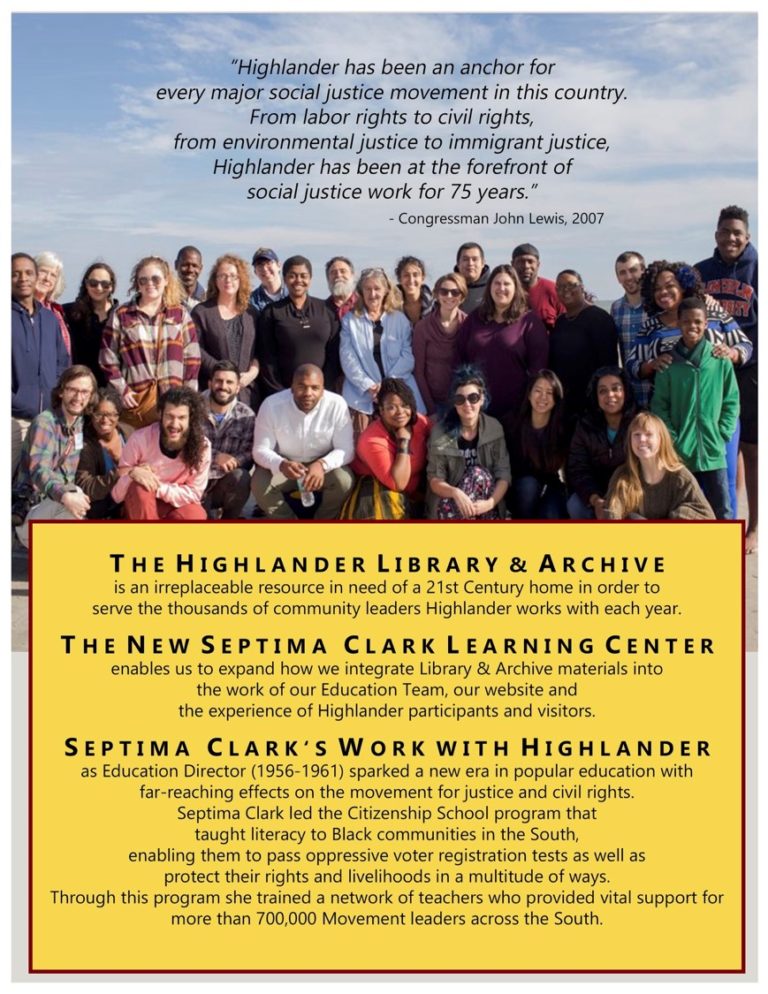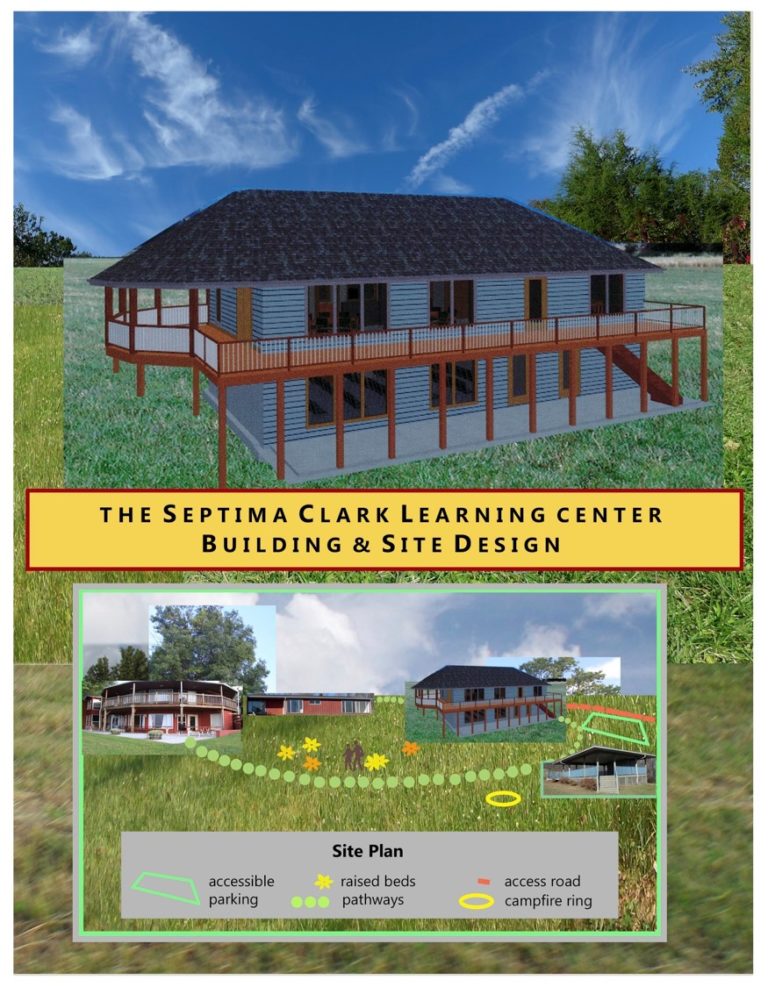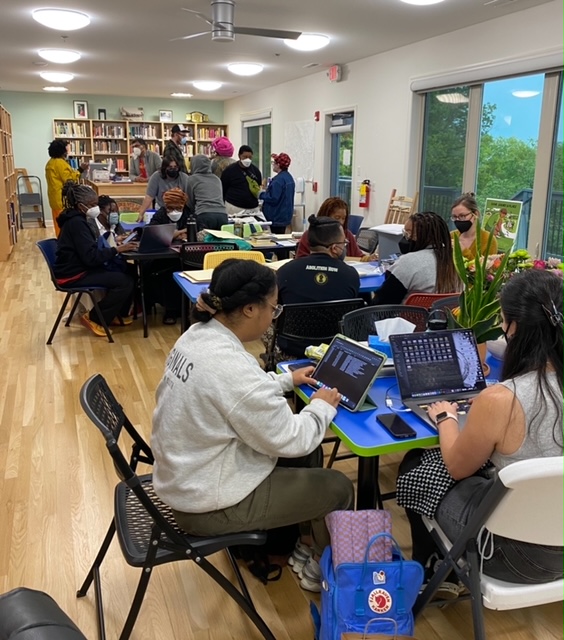
Welcome to the Septima Clark Learning Center, Highlander’s library and archive in a beautiful new building that houses our radical bookstore; a multi-use room for films, displays, workshops, healing space, or art-making; and has an incredible deck and porch to enjoy the Smoky Mountain views.
Staff librarians Ashby Haywood and Maranda Perez launched the Southern Memory Workers program in 2024 to foster a network of community-run archives across the region and beyond that can house and share collective memory of local and regional movement legacies. Memory work is a critical intervention for restoring and sustaining our liberation movements through public history tours, personal journaling practices, community-based archives, archival digitization, documentary photography, oral history, zines, and community mapping.
Ashby and Maranda are also recovering and digitizing historical documents, building out a timeline of Highlander’s work as we move toward our 100th anniversary, and are redeveloping our onsite book collection to include materials directly related to Highlander’s work and methodologies. Check out the new Soutron site for the Learning Center to access digital materials and resources, including more than 1,200 catalogued books and an easy link to our online bookstore.
Learn more by emailing ashby@highlandercenter.org maranda@highlandercenter.org
The Southern Memory Workers Collaborative is a network of activists, organizers, and cultural workers who are dedicated to documenting, preserving and stewarding stories, traditions, and liberatory practices in the U.S. South.
The advisory committee is currently composed of:
The Documentarian:
Why?
Our movements need memory workers now more than ever. However, the barriers to learning the skills associated with archival science, oral history, and related fields remain significant, especially in the Southern U.S. The Collaborative seeks to identify and increase training opportunities for Southern movement memory workers and to deepen connections between cultural workers and memory workers across the region.
How?
The work of the Collaborative will focus on the following goals:
Tour
In May, 2025, the Collaborative is doing a series of site-visits across the Southeast United States. This trip focuses on sites that demonstrate folk school frameworks of cultural stewardship through archival practices, artmaking, and food justice. The folk school framework involves noncompulsory, noncompetitive communal learning in a postsecondary setting. The Collaborative draws on Highlander’s tradition of folk schooling which cultivates studying as an act of challenging the existing social order for advancing democracy.
Host Sites:
During the tour, the Collaborative is partnering with the following sites:
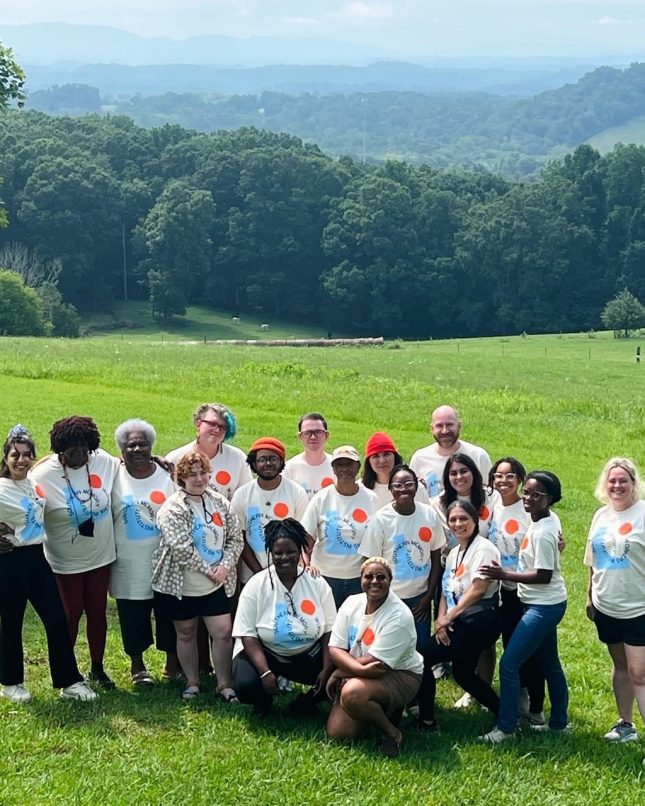
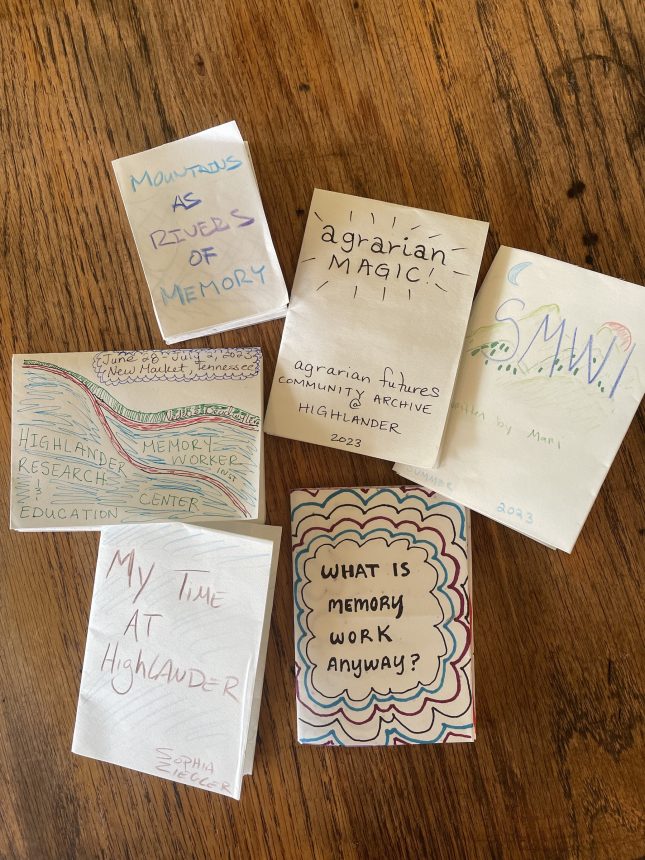
In 2022, Susan and Ashby hosted a monthly series online, “Up Close”, to dig deeper into the Septima Clark Learning Center’s many offerings. Watch the sessions below in case you missed them!
Have questions? Find answers in our FAQs
